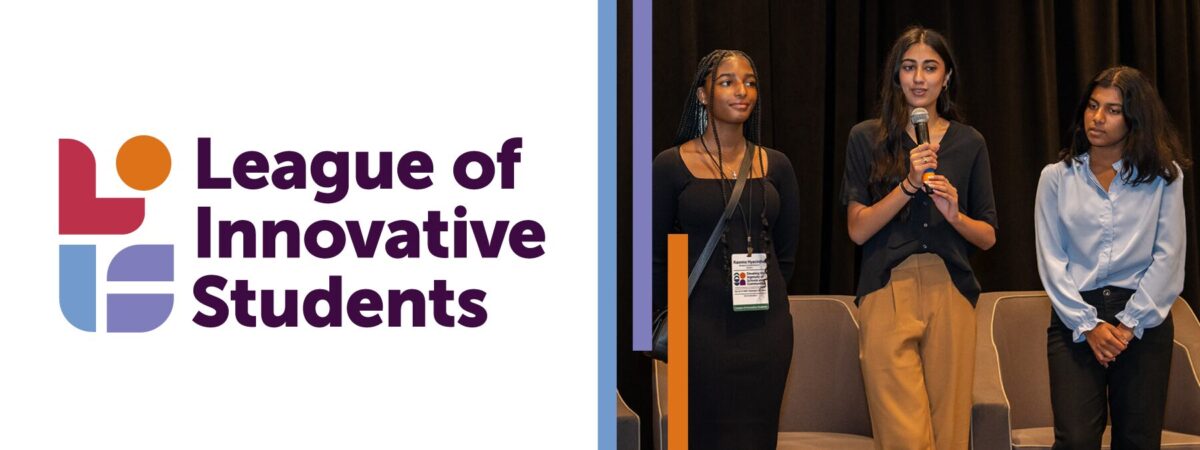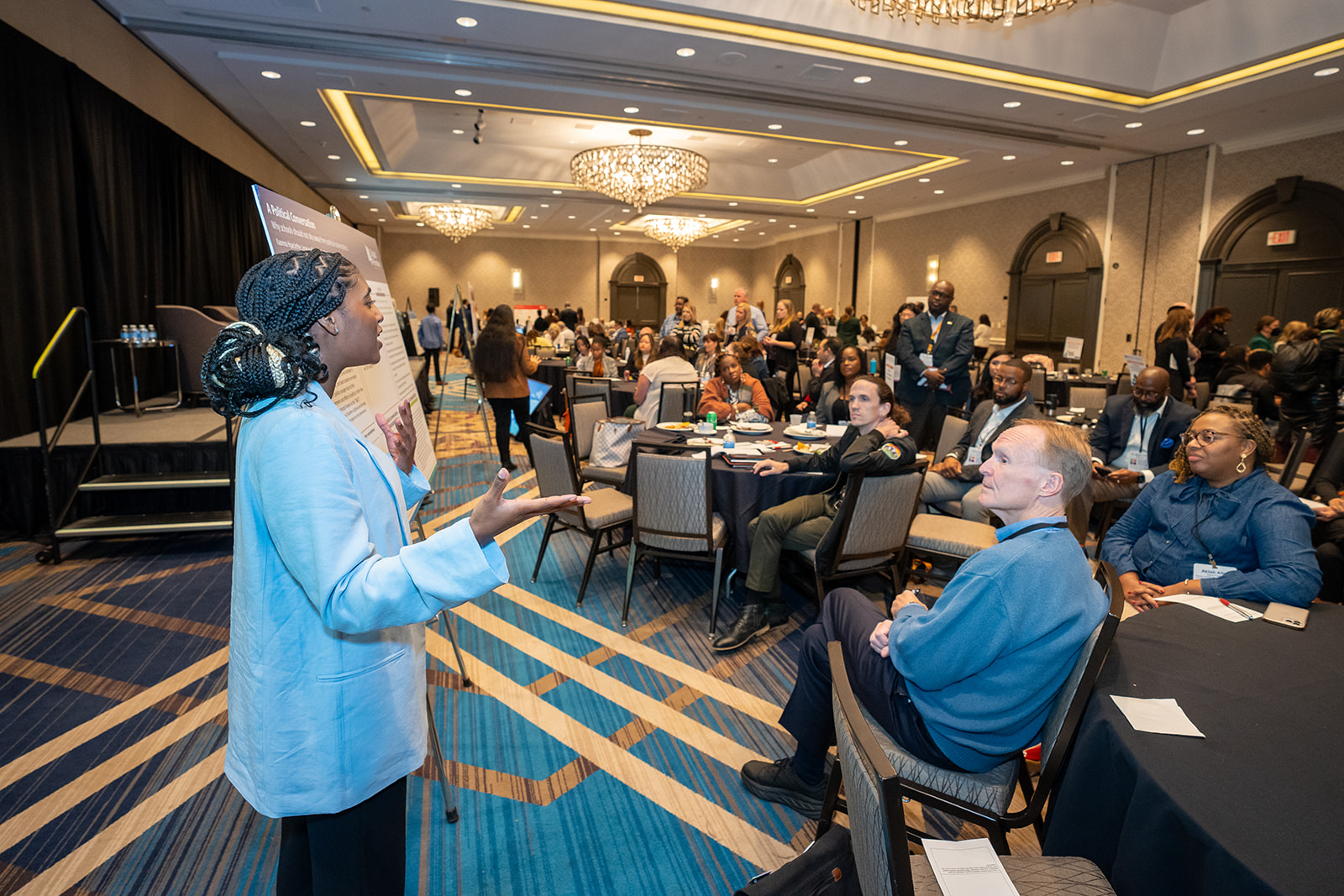
More than 100 high school students have engaged in Inclusive Innovation R&D protocols and processes as researchers, imagineers, and designers working with schools and communities. Each year, we host student design sprints—six-month projects where students investigate education challenges, co-design frameworks, and inform the development of edtech tools.
In 2024, more than 40 students led design sprints in three areas: investigating education challenges in their respective school communities; developing culturally relevant learning experiences from a student’s perspective; and designing edtech feedback loops in collaboration with product developers. Continue reading for student insights from their work.
Our students researched challenges in their districts and presented their findings at the Center for Inclusive Innovation’s annual convening last year. Returning students built upon their prior work to uncover new insights, while new members dove into unique challenges faced by their peers. Through their findings, the students aimed to shape the creation of equitable solutions that directly tackle the challenges unique to their district. For Jin-Jin Sanglimsuwan, a student at Covina-Valley Unified School District (California), truly understanding and addressing these issues requires perspectives and voices from students, who can offer firsthand insight into the education system and help educators and researchers more accurately identify inequalities.
Through the Challenge Map project, Jin-Jin researched instructional approaches and student learning styles. She found that over 50% of the students who responded to her survey and had grades of A’s and B’s shared that they struggled to understand the subjects being taught by their teachers. The key takeaway for Jin-Jin? “Students do best when they can interact with the curriculum … [and] need to be either interested in learning or motivated to learn.”
“If more of my friends and classmates had shared their perspectives or conducted their own research, my community would have benefited from all the insight and personal growth,” Jin-Jin said. “More students would feel empowered, and the districts would see more positive changes.”

The edtech feedback loops team explored what the student experience could look like when working with edtech developers to design new products and how their feedback can effectively be incorporated into the process. Through collaborating with Ben Grimley, CEO of English literacy digital platform SpeakAgent, students gained insight into the product development process. In return, the students shared their thoughts, opinions, and suggestions on edtech products that guided the development of a student-centered feedback loop that would foster the development of better and more equitable education products and tools. For Laila Golla, a student at Fox Chapel Area School District (Pennsylvania), this collaborative approach not only empowered students but also created a valuable learning environment where they could share ideas with others interested in further developing edtech with student voice and input centered.
“Edtech companies are made for students… Getting feedback from the students who are users of their product is essential,” she said. “Updating products based on feedback loops with student insight is crucial to the product achieving its purpose.”
Laila also shared that she believes education would be more holistic if more learners were involved in developing the edtech products they use in the classroom because “different experiences, backgrounds, and cultures all shape a person’s perspective.”
Students worked side by side with Suzanne Nobles, chief academic officer of the nonprofit edtech organization ReadWorks, to co-develop recommendations for edtech companies to incorporate essential characteristics to advance culturally responsive and sustaining education. These essential characteristics, developed by Saroja Warner, John Jacobs, and Rebecca Colina Neri at WestEd, are part of an approach to education that creates culturally affirming and inclusive learning environments, experiences, and outcomes for each student.
Through engaging in the process of recommending research activities and product features to help improve edtech, Fox Chapel Area Unified School District student Joseph Shin and his peers saw firsthand the importance of diverse perspectives—such as students from all age groups—to get an idea of what someone may face culturally or educationally.
“After working in this collaborative design, I now have a new perspective on how different cultures and technologies impact the education of students unlike me,” Joseph said. “It was almost bubble bursting to see the different aspects of life that I was not used to and I was fortunate enough to try and help bring light to [these challenges in edtech].”
The insights shared by our students highlight their profound understanding of the challenges they face and the need for inclusive, culturally responsive learning environments and education technology tools. As we continue to foster this national network, we are excited to see how these young leaders will influence the future of education, ensuring it is equitable, inclusive, and reflective of all student voices.
Learn more about the possibilities unlocked when students and families are elevated as co-researchers and co-designers! This K-12 Dive article from Chief Inclusive Innovation Researcher Viki Young, Ph.D. centers voices from Socorro Independent School District on how Inclusive Innovation inspires growth and renewal.